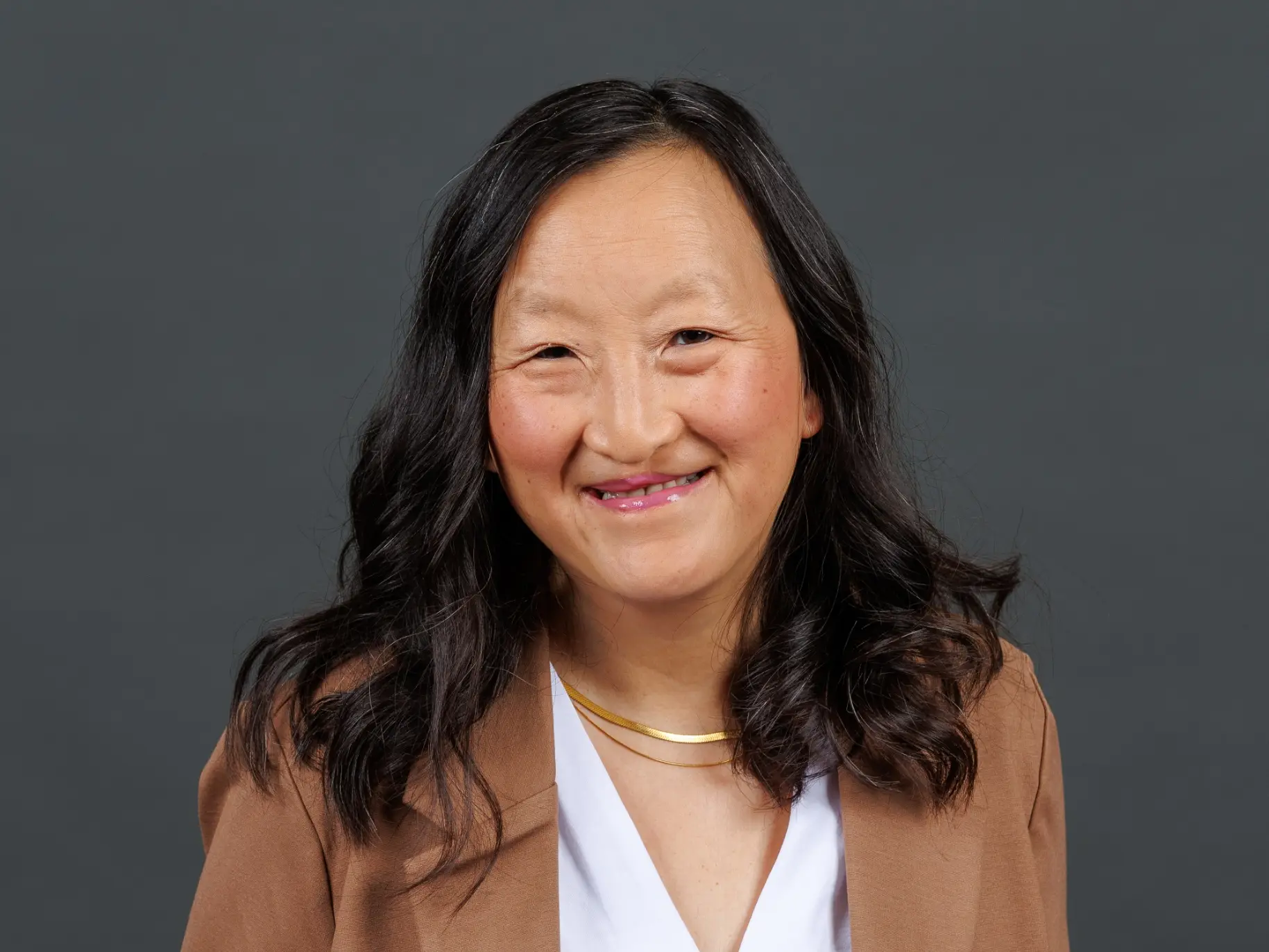- Home
- >
- APU Articles
- >
- News Article
Faculty Friday: Nori Henk ’00, PhD, Pursues Academic Excellence and Spiritual Growth
February 07, 2025 | Category Humanities and Sciences | Written By Jacqueline Guerrero

For some people, their undergraduate years are the final step in their academic journey, while for others they can be the doorway to a lifelong passion for learning. For Nori Henk, ’00, PhD, sociology professor, ethnic studies program director, and chair of the Departments of Political Science, History, and Sociology, Modern Languages, and TESOL, and the former faculty moderator, Azusa Pacific University opened up pathways that she had not thought possible.
In high school, Henk served on a Global Engagement trip through APU to Mexicali. Only 15 students attended the first trip; however, during her junior and senior years, Henk became the organizer of the Mexicali trip and was able to recruit nearly 300 students to serve. Envisioning a path of service and looking for a small, private, liberal arts college, Henk applied to APU.
Henk enrolled at APU as a political science and prelaw major, but took a sociology class in her first semester. “I’d never heard of sociology until college,” she said. “I fell in love with it and realized that many of the concepts and ideas represented how I thought.” Henk switched her major and graduated as a sociology and Christian ministries double major with a philosophy minor. Her experience organizing the Mexicali trips in high school also landed her a sought after job in the Institutions of Missions office (now the Office of Service and Discipleship) on campus where she worked for three and a half years. Henk’s time at APU was a chance to find herself, develop friendships, and learn about independence.
After graduation, Henk knew she wanted to continue learning about all of her academic interests. “Part of me wanted to be a teacher, but I didn’t know if I could do it,” she said. Henk applied for an MA in Theological Studies at Boston University, School of Theology in order to gain a scholarly understanding of the church. One of her professors was renowned sociologist of religion, Peter L. Berger, who wrote Henk a letter of recommendation that opened many doors for her. She went on to get her PhD in Sociology at Loyola University Chicago and taught there as an adjunct professor for two years before moving back to California.
More than a decade later, Henk became the program director of ethnic studies at APU and felt she needed to be credentialed in the field. She applied to a post-baccalaureate program at San Francisco State University and will complete her MA in Asian American studies this May.
When Henk decided to pursue sociology in college, she realized that it could be applied to many areas of academic thinking, including theology and faith. She believes that faith is something everyone grows in and that the classroom is a perfect space for that growth. “I’ve spent years developing my own faith identity, so in the classroom, I don’t impose my ideas on my students, but rather encourage being curious and asking questions to learn,” she said.
Through learning and teaching sociological theories, Henk found that the concept of “the good society,” where everyone mutually works and benefits together, overlaps with Christianity. “Christianity is about loving and taking care of one another,” she said. “Interdependence of ‘the good society’ doesn’t mean we are the same as everyone else, but looking at how we rely on one another’s gifts, which is comparable to the biblical analogy of the body of Christ.”
The natural overlap in sociology and faith allows for organic discussions in the classroom where Henk has been deeply inspired by her students. “My students have taught me to be more loving and open minded,” she said. “You can get comfortable in the way you think, but you can always grow and find new perspectives to think about. There’s value in the stories, experiences, and backgrounds that students come in with which ties to faith. Even through challenges, my students’ faith remains so strong.”